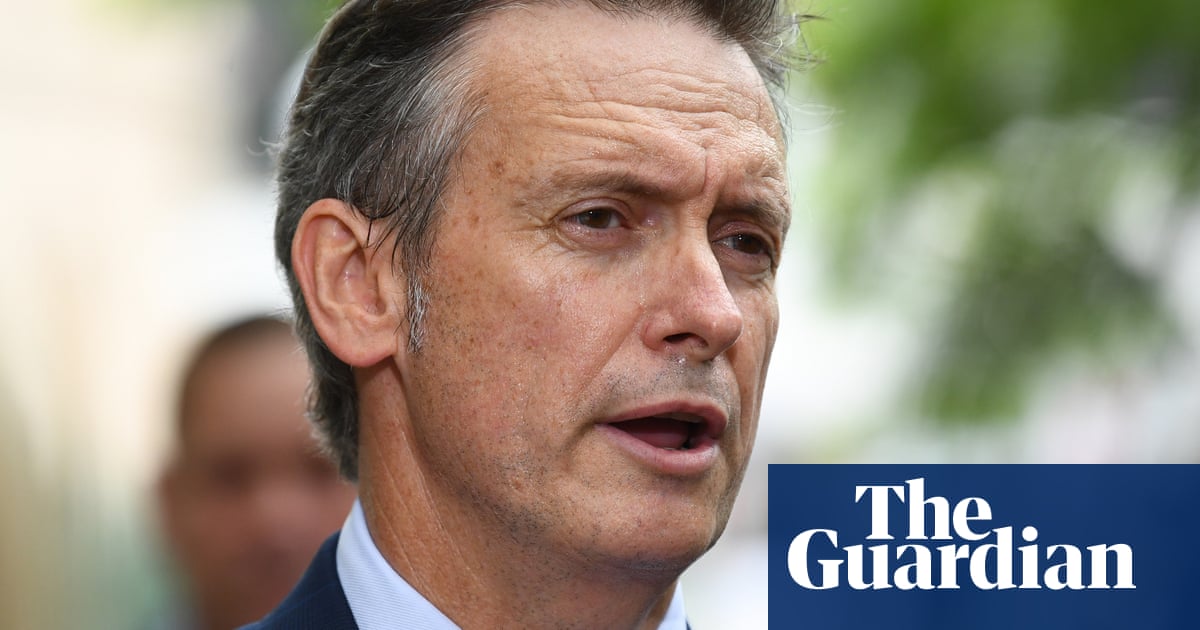Queensland’s government is “looking at” bringing back laws against public drunkenness and public urination, against the recommendation of the 1991 royal commission intoAboriginal deaths in custodyand sparking serious concerns among human rights experts and advocates.
“The removal of those summary offences, whether it’s public drunkenness or public urination, has hamstrung the police to be able to take action,” the state’s police minister, Dan Purdie, said on Wednesday.
Queensland was the last state to act on recommendation 79 of the royal commission to remove the offences.
Both public drunkenness and urination offenceswere removed from the criminal code in August 2023, under Labor police minister Mark Ryan. The change took effect in September 2024.
Victoria removed the offences in 2023,effective from November that year.
The Northern Territory decriminalised public intoxication in 1974. The Country Liberal party passed new laws last yearmaking those who breached it subject to a fine.
Sign up for Guardian Australia’s breaking news email
SinceDavid Crisafulli’s victoryin October 2024, it has introduced several rounds of youth justice legislation to extend maximum sentences and remove legislative protection for young people. Two of these flagship “adult crime, adult time” lawshave overridden the Human Rights Act.
When the removal of public drunkenness and urination laws was introduced, Ryan said the change reflected “mounting public opinion that these behaviours require a health and social welfare-based response, rather than entrenching vulnerable people in the criminal justice system through preferring criminal charges”
In parliament on Tuesday, Townsville LNP MP Adam Baillie criticised the decriminalisation decision as “weakening” the law, and “significantly impacting liveability in our beautiful part of the world”.
“The challenge of public intoxication, and antisocial behaviour that often accompanies it, is not a new problem for many communities across Queensland,” Baillie said. “Under Labor, public drunkenness and public urination laws were revoked, paving the way for the antisocial behaviour that has been plaguing our great city for years.”
Asked on Wednesday if the government was considering reversing Labor’s move, Purdie said it was something the government was “looking at”.
“We listen to our police, we listen to communities, we listen to victims, and if they need more laws or reinstated laws, like we reinstated the youth crime laws that Labor took away 10 years ago, we will do that … we’ll give them the laws they need to do their job,” he said.
Purdie said the government had been approached by people across the state asking for the laws to be brought back.
Sign up toBreaking News Australia
Get the most important news as it breaks
after newsletter promotion
“The police are telling us that they now struggle in some instances, to take appropriate action to protect the community and the amenity of people living in those areas since the removal of those summary offences acts,” he said.
“So we are having those discussions with those people, and will continue to listen”.
Debbie Killroy, the CEO of advocacy group for incarcerated women Sisters Inside, said reversing the decision would be a “dangerous and deeply irresponsible move that flies in the face of decades of evidence and advocacy”.
“This proposal is not just a policy reversal – it’s an attack on Aboriginal lives,” she said.
Queensland’s Human Rights Commissioner, Scott McDougall, said “a move to re-introduce these laws would represent another blow in a continuing assault on the rights of First Nations people in Queensland”.
“Police do not lack the powers to respond in the interests of community safety. The solution to these behaviours is a much greater investment in health and prevention,” he said.
“To reintroduce a public drunkenness offence would signal that the Queensland government has no interest in Closing the Gap or reducing deaths in custody.”
The 1991 royal commission recommended removing the offences as a way of diverting Aboriginal people from police custody.
It found the offence was being disproportionately and “unfairly” applied to the Aboriginal and Torres Strait Islander community.
“The labelling of such behaviour as ‘criminal’ and dealing with it as part of the criminal justice process is unjustifiable,” the commission found.
A2022 parliamentary reportfound more than 47% of people charged with public intoxication in Queensland were Indigenous, 10 times more than the proportion of the state’s overall population of 4.6%.
